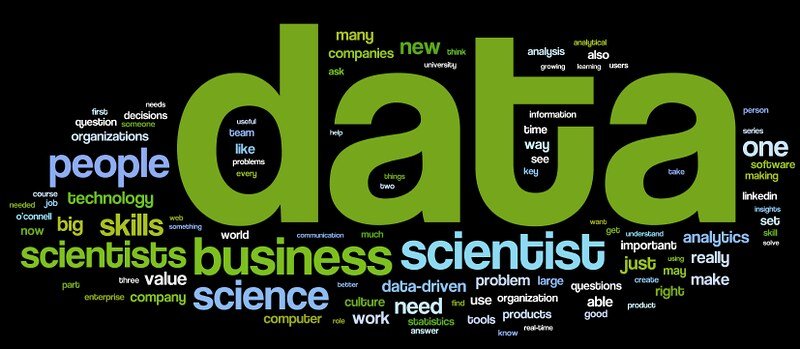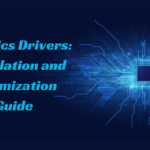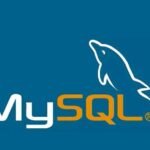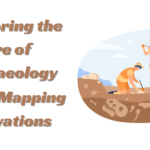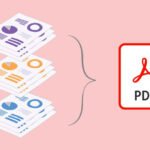A Comprehensive Guide for Data Scientist Beginners in 2024
- 1 Understanding the Role of a Data Scientist:
- 1.1 Building a Strong Educational Foundation:
- 1.2 Mastering Essential Skills:
- 1.3 Exploring Data Science Online Courses:
- 1.4 Hands-On Projects and Real-world Applications:
- 1.5 Networking and Community Engagement:
- 1.6 Building a Strong Portfolio:
- 2 Conclusion:
- 2.1 FAQs:
- 2.1.1 Q: Do I need a formal degree to become a data scientist?
- 2.1.2 Q: Which programming languages should I learn for data science?
- 2.1.3 Q: Are online data science courses credible?
- 2.1.4 Q: How can I gain practical experience in data science?
- 2.1.5 Q: Is it necessary to pursue certifications in data science?
- 2.1.6 Q: How can I stay updated on industry trends in data science?
- 2.1.7 Q: What are some advanced topics I can explore in data science?
- 2.1.8 Q: How can I showcase my data science projects effectively?
- 2.1.9 Q: Are data science boot camps worth it?
- 2.1.10 Q: How can I contribute to open-source projects in data science?
- Understand the role: Data scientists extract insights from data to inform decisions.
- Build skills: Master programming, statistics, and machine learning.
- Gain experience: Engage in hands-on projects, network, and stay updated on industry trends.
Stepping into the realm of data science in 2024 opens doors to a world of innovation and problem-solving at the forefront of technological advancements. Suppose you’re eager to become a data scientist. In that case, this comprehensive guide will navigate you through the essential steps, placing a special emphasis on the importance of online data science courses and specialized data scientist courses.
Understanding the Role of a Data Scientist:
To embark on this journey, it’s crucial to gain a clear understanding of the data scientist’s role. These analytical experts extract meaningful insights from data, aiding organizations in making informed decisions. By leveraging statistical methods, machine learning algorithms, and programming skills, data scientists uncover patterns, trends, and valuable information within vast datasets.
Building a Strong Educational Foundation:
- Relevant Degrees: Many data scientists hold degrees in fields such as computer science, statistics, mathematics, or related disciplines. While a formal degree is beneficial, it’s not always mandatory. Online platforms and universities offer specialized courses that provide a robust foundation in data science.
- Data Science Bootcamps: Consider enrolling in data science bootcamps, which are intensive, short-term programs designed to equip you with essential skills quickly. These programs often cover key topics like programming languages, data manipulation, and machine learning.
Mastering Essential Skills:
- Programming Languages: Learn programming languages commonly used in data science, such as Python and R. These languages are versatile and widely adopted in the data science community for tasks like data manipulation, analysis, and building machine learning models.
- Statistics and Mathematics: A solid understanding of statistics and mathematics is fundamental to data science. Focus on concepts like probability, hypothesis testing, and linear algebra. Online courses can provide structured learning in these areas.
- Data Manipulation and Analysis: Gain proficiency in tools like Pandas for Python or data manipulation libraries in R. These tools are crucial for cleaning, organizing, and analyzing datasets.
- Machine Learning: Familiarise yourself with machine learning algorithms and techniques. Online courses often cover topics like supervised and unsupervised learning, regression, and classification.
Exploring Data Science Online Courses:
- Specialized Platforms: Explore online learning platforms that offer specialized data science courses. Platforms like Great Learning provide a plethora of courses, ranging from beginner to advanced levels.
- Data Science Specializations: Look for comprehensive data science specializations that cover a wide array of topics. Specializations often include multiple courses, hands-on projects, and capstone projects to solidify your learning.
- Certifications: Consider pursuing a PG in data science from reputable platforms or institutions. Certifications can enhance your credibility and demonstrate your commitment to mastering data science skills.
Hands-On Projects and Real-world Applications:
- Practical Experience: Apply your theoretical knowledge by working on hands-on projects. Platforms like Kaggle offer datasets for real-world problems, allowing you to hone your skills in a practical setting.
- Capstone Projects: Many data science courses include capstone projects where you can showcase your skills by solving a complex problem or addressing a real-world challenge. These projects become valuable additions to your portfolio.
Networking and Community Engagement:
- Join Data Science Communities: Engage with the data science community through forums, social media, and local meetups. Platforms like LinkedIn and Twitter are excellent for networking and staying updated on industry trends.
- Collaborate on Open Source Projects: Contribute to open-source projects related to data science. Collaborating with others not only enhances your skills but also allows you to learn from experienced professionals.
- Stay Updated on Industry Trends: The field of data science is dynamic, with new tools and techniques emerging regularly. Stay updated on industry trends by following blogs, attending webinars, and reading research papers.
- Advanced Topics: As you progress, consider delving into advanced topics such as deep learning, natural language processing, and big data technologies. Advanced courses can deepen your expertise in specialized areas of data science.
Building a Strong Portfolio:
- Showcasing Your Work: Assemble a portfolio showcasing your projects, certifications, and any publications or articles you’ve written. A strong portfolio serves as a tangible representation of your skills and accomplishments.
- Personal Website: Consider creating a personal website where you can display your portfolio, share insights, and demonstrate your passion for data science. A well-curated online presence can make a lasting impression on potential employers.
Conclusion:
Becoming a data scientist in 2024 is an exciting and achievable goal with the right guidance and resources. By focusing on building a strong educational foundation, mastering essential skills, exploring data science online courses, engaging in hands-on projects, networking with the community, staying updated on industry trends, and building a strong portfolio, you can position yourself as a competitive candidate in the dynamic field of data science.
The journey is challenging but immensely rewarding, offering opportunities to contribute to cutting-edge projects and shape the future of data-driven decision-making.
FAQs:
Q: Do I need a formal degree to become a data scientist?
A: While a relevant degree can be beneficial, it’s not always mandatory. Online courses and bootcamps offer alternative paths to acquire necessary skills.
Q: Which programming languages should I learn for data science?
A: Python and R are commonly used in data science for their versatility and extensive libraries for data manipulation and analysis.
Q: Are online data science courses credible?
A: Yes, many reputable platforms and universities offer online courses with comprehensive curricula and industry-relevant content.
Q: How can I gain practical experience in data science?
A: Engage in hands-on projects, participate in Kaggle competitions, and work on capstone projects offered by online courses.
Q: Is it necessary to pursue certifications in data science?
A: Certifications can enhance credibility and demonstrate commitment, but they’re not always required. Focus on building a strong portfolio of projects.
Q: How can I stay updated on industry trends in data science?
A: Follow blogs, attend webinars, join online forums, and participate in local meetups to stay informed about the latest developments.
Q: What are some advanced topics I can explore in data science?
A: Consider delving into deep learning, natural language processing, big data technologies, and other specialized areas as you progress.
Q: How can I showcase my data science projects effectively?
A: Create a strong portfolio showcasing your projects, certifications, and any publications or articles you’ve written. Consider building a personal website for a professional online presence.
Q: Are data science boot camps worth it?
A: Bootcamps can be a valuable option for intensive, short-term training in essential data science skills. Research thoroughly to find reputable programs that align with your goals.
Q: How can I contribute to open-source projects in data science?
A: Explore GitHub and other platforms for data science-related open-source projects. Contribute code, documentation, or participate in discussions to collaborate with the community and enhance your skills.


